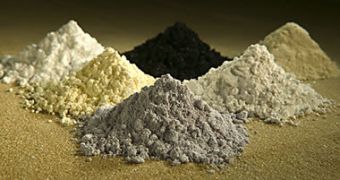In the not too distant future, Ford is expected to launch two new car models: the Fusion Hybrid and the C-MAX Hybrid.
Apparently, both these car types will present to the general public a new third-generation hybrid system, which helps protect the world's rare earth metal resources.
Ford spokespersons and leaders discussed the idea of switching from nickel-metal-hydride batteries to lithium-ion alternatives with several members of the press, and pointed out the fact that that shift in the company's manufacturing agenda stood to yield significant benefits both from an environmental, and from a financial standpoint.
Thus, they wished to emphasize that, thanks to that new technology, the process of manufacturing cars was to become considerably cheaper (costs are expected to be cut down by as much as 30%) and the vehicles coming off the production line would witness their fuel efficiency being significantly improved.
Business Green quotes Chuck Gray, presently in charge of overseeing Ford's hybrid and electric vehicles department, who made a case of how, “We're continually looking to find ways to provide greater fuel efficiency as well as cost savings to customers of our hybrid vehicles, and the reduction of rare earth metals is a key part of this strategy.”
“Furthermore, the third-generation hybrid technology we are now using builds on our 20 years of electric vehicle innovations.”
For those unaware, rare earth metals are extremely expensive and difficult to come by materials, yet, for the time being at least, crucial in the manufacturing of most of the electronic consumer products we use on a daily basis (mobile phones, LED television screens, computer screens etc.).
However, 90% of the rare earth metals presently found on the global market come from China, a country that only a while back decided to drastically cut down on exports involving these materials.
Therefore, it should not come as a surprise that various companies are going through the trouble of finding alternatives for them.

 14 DAY TRIAL //
14 DAY TRIAL //